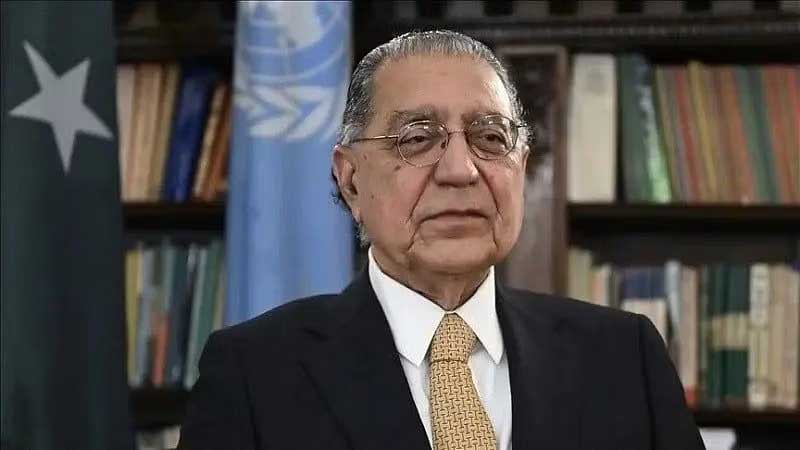ISLAMABAD, Jan 1: On January 1, Pakistan officially commenced its two-year term as a non-permanent member of the United Nations Security Council (UNSC). Ambassador Munir Akram expressed that the Pakistani delegation aims to take an “active and constructive” stance in tackling significant global challenges.
“Our presence will be evident in the Security Council,” remarked Ambassador Akram, Pakistan’s chief diplomat at the UN, in an interview with the state-run APP (Associated Press of Pakistan) news agency.
Beginning Wednesday, Pakistan will hold a seat in the Security Council for the 2025-26 term, marking the eighth occasion the nation has participated in this 15-member assembly.
In June, Pakistan was elected to the council with an overwhelming majority, securing 182 out of 193 votes in the General Assembly—well beyond the 124 votes needed for a two-thirds majority.
“We are entering the council during a period of significant geopolitical instability, marked by intense rivalry among the world’s two largest powers, ongoing conflicts in Europe, the Middle East, Africa, and beyond, alongside a rapidly escalating arms race,” stated Akram.
“As a responsible nation—the fifth largest by population—Pakistan intends to engage proactively and constructively, in accordance with the UN Charter, to cease hostilities, promote peaceful dispute resolution, and mitigate the adverse effects of great power tensions, the arms race, emerging weapons, and expanding areas of conflict, as well as the growing threat of terrorism,” he added.
Pakistan takes the place of Japan, which currently holds the Asian seat in the Security Council, a critical body for fostering and maintaining international peace.
Pakistan has previously served on the council during the terms 2012-13, 2003-04, 1993-94, 1983-84, 1976-77, 1968-69, and 1952-53.
In the recent June elections, Pakistan was elected alongside Denmark, Greece, Panama, and Somalia, filling the vacancies left by Japan, Ecuador, Malta, Mozambique, and Switzerland, whose terms conclude on December 31, 2024.
The new members will join the five permanent members with veto power: the United States, Russia, China, the United Kingdom, and France, along with the five non-permanent members elected last year—Algeria, Guyana, South Korea, Sierra Leone, and Slovenia. (PTI)


Leave a Reply